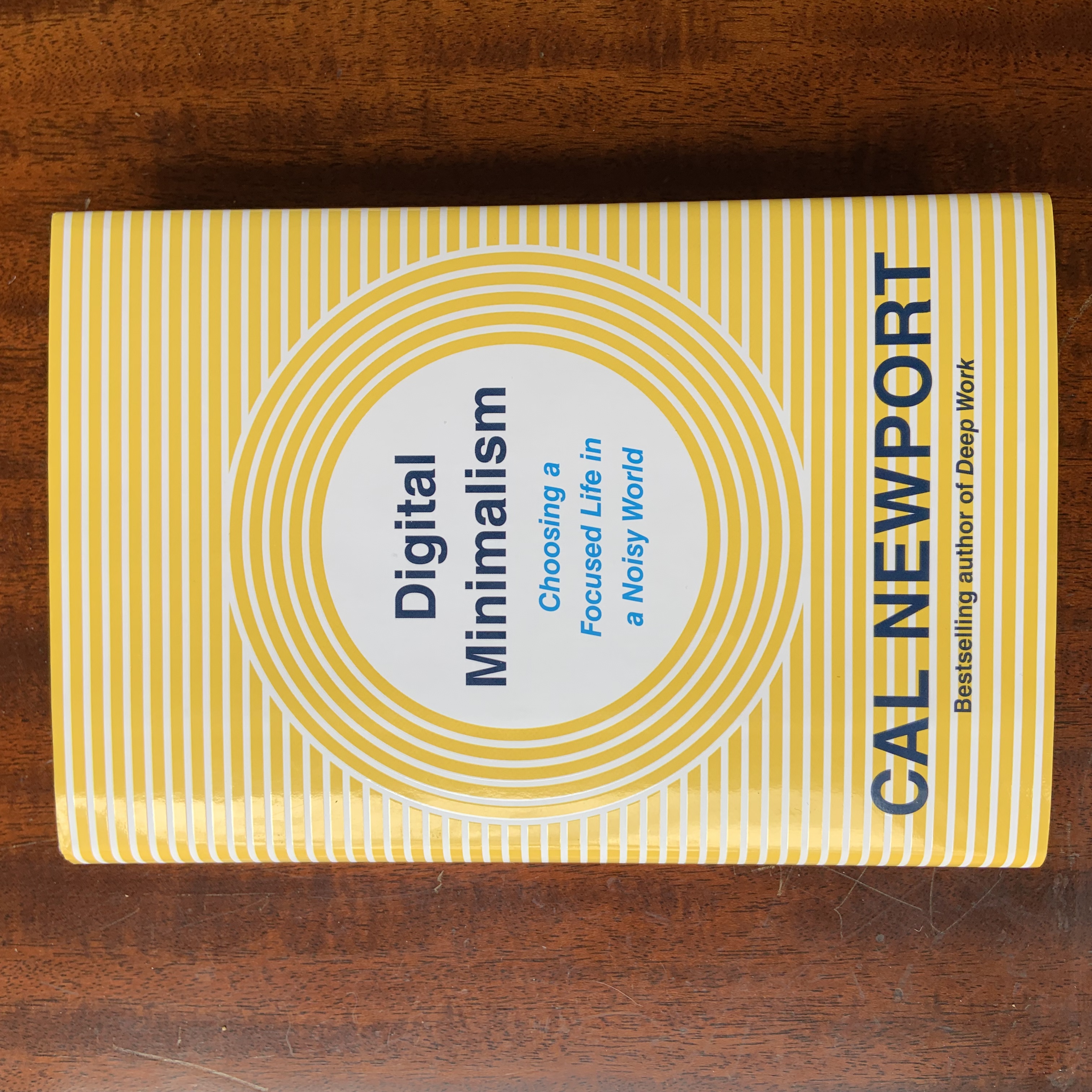My church has a long name: Covenant Orthodox Presbyterian Church. Here’s a short explanation of what it means.
I asked my students taking New Testament Survey to read half of one of the gospels, then write at least one paragraph answering this question: “According to what you read, who is Jesus and what is his mission?”
I loved reading these micro-papers about Jesus. There was nothing fancy about them. They were mostly simple recitiations of how the gospel writers themselves directly answer this question. But the plain truth about Jesus is so beautiful and encouraging! It brought me joy to see that truth affirmed in each summary I read.
Here’s what they found:
- Jesus is God.
- Jesus is human.
- Jesus is so good!
- Jesus fulfills the Old Testament prophesies.
- Reactions to Jesus are strong.
- Jesus forgives sins.
- Jesus helps people in big ways: healing, exorcism, raising from the dead!
- Jesus has great authority in his teaching.
- In his words, in his actions, and in the testimony of others—God the Father, John the Baptist, angels, and even demons—who Jesus is and what his mission is is very clear.
For next week, I asked my students to read the rest of the gospel they started, and think about the various ways people react to Jesus in the gospels.
When’s the last time you read one of the gospels from beginning to end?
Reformed preachers study the writings of our church fathers for many reasons.
One reason is that new heresies are just the old ones, brought again by Satan to harm the church.
This is why the great Puritan, William Perkins, admonished preachers to “get help from orthodox Christian writers, not only from modern times but also from the ancient church.”
Reading our church fathers reminds us that no error is new under the sun, and it readies us to handle these pernicious problems.
“We do not need to look for any novel way of rejecting and refuting heresies;” Perkins wrote, “the ancient ones found in the Councils and the Fathers are well-tested and still reliable.”
See William Perkins, The Art of Prophesying, 24 for these quotes and for a list of ancient heresies matched with the ones Perkins was facing in the late 16th and early 17th centuries.
I’m not sure what I’m listening to because I don’t know Danish, but it’s so beautiful. These kids sing with their hearts.
Sometime preachers are told, “Preach to the children.” The idea is that if you speak in a way children can understand then everyone will understand.
This is good advice, but I’d like to add something. What if we didn’t only preach to the children but we also preached like a child?
This is the advice Samuel Miller gave his students at old Princeton. He thought that if you wanted to find “the most perfect specimen” of preaching style, you should look to children.
In a book about Miller’s pastoral theology, James M. Garretson gives us this quote by Miller that explains the thought:
“If we could suppose a little child sufficiently intelligent and forcible, to get up and tell his story, with all the unaffected ease and gracefulness of children; without a thought of himself, but supremely intent on making himself understood, and pouring out the matter which he had to deliver with his whole heart, without any flourish or effort, we should have, as to this point, the most perfect specimen.”
The advice that says preach to the children wants the preacher to be more clear. Samuel Miller’s advice to preach like a child includes clarity but goes further. It goes deeper too since it asks the preacher to pay attention not only to his words but also to his heart.
Of course, we don’t want childish preaching or preachers. And kids have plenty of speaking faults: too much detail, a lack of clear distinctions, a heart too easily deceived.
But, as Garretson summarizes, what children have, which “adults must apply themselves to attain”, is simplicity that is unpretentious and eloquence that is unaffected.
That’s what it means to preach like a child.
For more of Samuel Miller’s pastoral theology, read An Able and Faithful Ministry: Samuel Miller and the Pastoral Office by James M. Garretson.
Long-term project I’ve been putting off. And my wife wants this done. Do you think I can DIY this? Maybe I should hire someone. Tips?

We think about time a lot, but not always in the best ways. Seth Godin explains.
Two of our kids attend Veritas Academy of Tucson, which they love. But we need help paying their tuition. It’s is $4,812 per student.
👉 Here’s what’s amazing. You can help pay for their education with no cost to you.
- Make a donation to Arizona Christian School Tuition Organization.
- Write Chelpka Family in the recommendation field.
- Use the donation as a dollar-for-dollar tax credit on your state taxes.
It’s that easy. And it would mean the world to us.
For 2018 taxes, married couples filing jointly can claim up to $2,213 of their total taxes owed, single taxpayers up to $1,107. To donate click here.
Thanks so much!
Christopher and Della
P. S. Please don’t wait, the school year is over half done and we need Veritas to be fully funded. They do a great job for our kids! If you can, make your donation ASAP.
When I was growing up in Phoenix, I used to buy classical music CDs from the Tower Records on 40th Street and Thomas. Inside the store, there was a special room just for classical music. The walls and door were made of soundproof glass so that as soon as the door closed you could only hear the clacking of CD cases as you looked through the shelves, and maybe the sound of Yo-Yo Ma’s cello or Christopher Parkening’s guitar playing through the speakers. But perhaps the best part was that in that room you could find anything you wanted. You could find new things too. This was because the collection was huge and because it was organized by humans who knew what they were doing.
While each store was unique, Tower Records had a reputation for devoting special attention to the way it sold classical music. In San Francisco, there was a classical annex across the street from its main building. In New York, the Tower Records at Lincoln Center was a hot spot for buying classical records and meeting the artists who made them. Somehow, Tower Records realized that classical music had to be treated differently from the rest of their catalog.
Perhaps they saw how information-rich classical recordings are. One album might have multiple composers, arrangers, soloists, orchestras, and maybe even conductors. There may be multiple works, each broken into parts, and spread over a few CDs in a set. Add to this the liner notes, which were often as good or better than any well-researched encyclopedia or journal article you might read.
All this information makes the experience of listening more enjoyable and opens up new listening possibilities. But it also makes cataloging and database management a pain. And, sadly, since Tower Records closed, I’ve rarely seen the information management side of classical music done well, in brick-and-mortar stores or on the new streaming services.
Our streaming services don’t know how to deal with the thousands of pieces called “Adagio”, or how to treat a movement not like a symphony. They often don’t even display full titles. And there are other problems.
Mitchel Broussard, for example, points out how Apple Music
- treats classical music too narrowly as a genre,
- mishandles and strips the rich information that accompanies classical music recordings,
- breaks up tracks,
- and more.
But happily, this can be fixed. As Broussard points out, there are many practical steps Apple Music can take. For example, they can “build better composer pages and offer more categories”. He also suggests, hiring human curators and companies that know what they’re doing. Perhaps, there are some Tower Records people hanging around somewhere?
After I moved away from home, music became easily available over the internet; first, through illegitimate services like Napster and Limewire, then later through paid subscriptions like Spotify and Apple Music. These changes improved our access to classical music. And that’s great. But somehow, with the exception perhaps of NPR deejays, no one seems to know how to deliver that music in an organized way.
For an executive at Apple Music looking to make their mark, this project is being served on a silver platter. Let’s hope someone is listening.
“Mind-blowing” is so overused, it’s _______________!
- staggering
- startling
- stunning
- stupefying
- a different synonym for “mind-blowing” that doesn’t start with “st”
Have you ever overpromised on some work you were doing for someone else?
Augustine did that when he promised to preach 1 John in a certain amount of time. Things probably started fine, but as he was going along he realized his plan was no good. So at the end of sermon number six of what would become a ten-part series, he tells his listeners, “I am afraid the epistle itself will not be finished during these days as I promised, but as the Lord will, it is better to reserve the remainder, than to overload your hearts with too much food”.
Everyone makes planning mistakes, even Augustine. When you do, follow his example.
Instead of barreling forward, be humble. Keep your priorities straight, readjust as necessary, and let everyone know what’s going on.
There is too much going on right now! 🤪
Sometimes, when you’re in the middle of pain and suffering, it is difficult to trust that God is good. He promised me salvation! So, where is it?
Take, for example, the criminal described in Luke 23 who was being crucified alongside Jesus. As he was being crucified, this man recognizes that he is not like Jesus. He sees that he is guilty and is “receiving the due reward” for he sins, but that Jesus was an innocent man. The criminal also recognizes that Jesus is the merciful God, and is capable of saving him, even though Jesus is himself, at that moment, dying.
The man said, “Jesus, remember me when you come into your kingdom.”
And Jesus said to him, “Truly, I say to you, today you will be with me in paradise.”
When Jesus says these words, Jesus gives the criminal mercy, forgiveness, and the promise of paradise in God’s presence. Today.
And yet, what about the man’s suffering right now? What was is this forgiven sinner to think of the salvation he had been promised when he could barely pull air into his lungs anymore, when his whole body screamed with pain, when the shame of his sins was still displayed for every passerby to see?
This, John Calvin writes, “reminds us that we ought not to judge of the grace of God by the perception of the flesh; for it will often happen that those to whom God is reconciled are permitted by him to be severely afflicted.”
In other words, suffering in this life doesn’t make God’s promise of paradise false. In fact, Calvin warns that we need to guard ourselves against doubting God in these moments. Because, if we don’t guard ourselves, we might allow “the severity of pain hinder us from tasting the goodness of God.”
This is an important point. Calvin is not merely saying that God will come through in the future, so hang on. That’s true, but he’s also saying that if we hold on to the promise of the merciful God, then we will experience God’s goodness and mercy even now in our sufferings, even during a crucifixion. As Calvin says,
“all our afflictions ought to be mitigated and soothed by this single consolation, that as soon as God has received us into his favor, all the afflictions which we endure are aids to our salvation. This will cause our faith not only to rise victorious over all our distresses, but to enjoy calm repose amidst the endurance of sufferings.”
Paul testifies to this in Romans 5 when he explains that “since we have been justified by faith, we have peace with God through our Lord Jesus Christ.” This work of God in Christ gives us peace and allows us to rejoice “in the hope of the glory of God.” But there’s more!
“Not only that, but we rejoice in our sufferings, knowing that suffering produces endurance, and endurance produces character, and character produces hope, and hope does not put us to shame, because God’s love has been poured into our hearts through the Holy Spirit who has been given to us. For while we were still weak, at the right time Christ died for the ungodly.”
I doubt that after hearing Jesus' promise, the pain in the crucified criminal’s body went all away. But I have experienced in my own life and have heard in the testimonies of other Christians that what Paul says is true. God does give comfort and perseverance to those who suffer. And that he uses those sufferings for our salvation. You can trust him.
Charels Spurgeon once lamented how many Christians, especially ministers, don’t get the relationship between the law and gospel right.
“O, when will all professors, and especially all professed ministers of Christ, learn the difference between the law and the gospel? Most of them make a mingle-mangle, and serve out deadly potions to the people…”
But how do you avoid this? That’s a big question, but John Calvin offers some good advice in his comments on 1 John 2:12.
“Holiness of life ought indeed to be urged, the fear of God ought to be carefully enjoined, men ought to be sharply goaded to repentance, newness of life together with its fruits, ought to be commended; but still we ought ever to take heed, lest the doctrine of faith be smothered,— that doctrine which teaches that Christ is the only offer of salvation and all of blessings; on the contrary, such moderation ought to be presented, that faith may ever retain its own primacy. This is the rule prescribed to us by John: having faithfully spoken of good works, lest he should seem to give them more importance than he ought to have done, he careful he calls us back to contemplate the grace of Christ.”
According to Calvin, it’s not enough to preach both the law and the gospel. They must also be proclaimed in right relation to one another.
Understanding what the law and gospel are and how they are related is essential for Christian preaching. Ministers should be expert in them. Here are some things you can read to avoid the mingle-mangle:
- Edward Fisher, The Marrow of Modern Divinity
- Sinclair Ferguson, The Whole Christ
- John Colquhoun, A Treatise on the Law and the Gospel
I just wrote a review on Cal Newport’s new book, Digital Minimalism: Choosing a Focused Life in a Noisy World. I’ll either post a link to the review or publish it here in the future.
Bottom line: The only people I know who don’t need to read this book are those who have already adopted his ideas, which is hardly anyone. Do yourself a favor and get this book.

Ti Adelaide Martin specializes in hospitality. She recently opened New Orleans Culinary and Hospitality Institute and was featured in the Wall Street Journal. See: “How to Host a Dinner Like a Pro”
In that feature, she offers some advice. Hospitality requires, she says, “systems, not just smiles.”
“Having that system in place makes it easier for us to be warm and gracious and hospitable, and to connect.”
The Bible tells us to be proactive about hospitality. We need to think about it in advance and be prepared for it. For example, wealthy Christians are commanded in 1 Timothy 6:18 “to be rich in good works, to be generous and ready [or, willing] to share.” And while hospitality is a particular blessing and calling for the wealthy, God says in Romans 12:13 that all Christians must “seek to show hospitality”. We must not neglect it, according to Hebrews 13:2. Seeking is the opposite of neglecting. Seeking is proactive. And interestingly, in Romans, Paul may intend an even stronger verb than seek.
The word that “seek” translates in Romans 12:13 is διώκειν, which usually means to pursue, chase, or drive after something. In some contexts it can mean to prosecute or persecute. This is probably the case when Paul uses διώκειν in the following verse: “Bless those who persecute [διώκοντας] you, bless and do not curse them”. If verse 14 refers to persecuting—and all English versions translate it this way, probably because of Matthew 5—it is a quite a thing to pair this kind of pursuit with the verse before about pursuing hospitality. In that case, Paul would be saying something like, “pursue the goal of showing hospitality, and when others pursue you with the intent to harm you, bless them.” If it doesn’t mean that and instead means, “Bless those who pursue you in showing you hospitality. Don’t curse them!”, then this also strengthens God’s call to be hospitable.
Either way, God tells us to be hospitable and that it’s not good enough to just let hospitality happen. This is because hospitality falls into the broader category of love, as it does in Romans 12. Διώκετε τὴν ἀγάπην—Pursue love—says 1 Corinthians 14:1. Christ’s love for us was proactive, purposeful, and planned. Those who have been born of God will love others in a similar way.
This is why systems are important. Systems for being hospitable make the occasional regular; they ensure that what might be overlooked will be attended to instead. Systems make hospitality easier for the host and a greater blessing for the guest. Of course, each organization, restaurant, church, family, etc., will need to find systems that fit their particular needs and goals, but having those systems they must.
In my church and in my family, we have some good systems in place. But there is room for growth. What about you? What systems do you have in place that make a big difference for you and for those whom you seek to serve?

